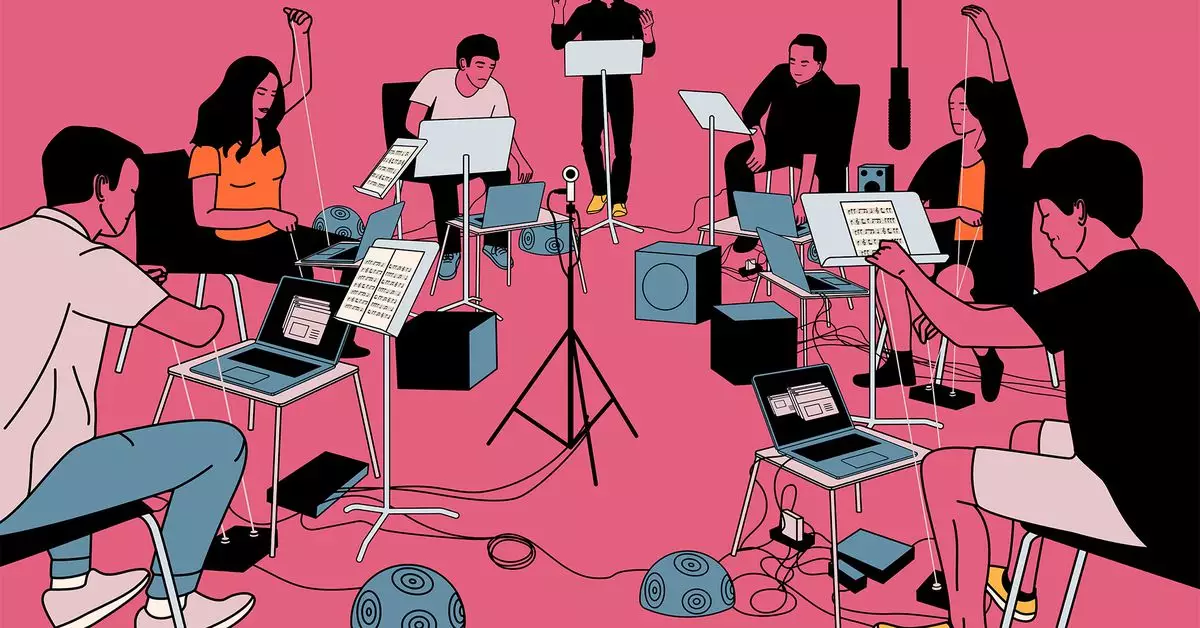In a world where technology continuously reshapes the way we create and engage with art, Ge Wang stands out as a revolutionary figure in the realm of computer music. As an associate professor at Stanford University’s Center for Computer Research in Music and Acoustics (CCRMA), he uniquely leverages technology to transcend traditional music composition. Rather than utilizing computers merely as musical instruments, Wang approaches them as creative platforms, inviting exploration and experimentation. This fundamental shift reshapes our understanding of what music can be and how it can be created, pushing the boundaries of both musical theory and practice.
Wang’s pedagogical philosophy centers around the idea of fostering creativity through playfulness. He emphasizes that students should engage with technology as an artistic tool instead of viewing it as a strict discipline to master. This approach is particularly relevant in today’s fast-paced digital environment, where efficiency is often prioritized over creativity. By encouraging students to experiment with technology, Wang instills a sense of curiosity that can lead to groundbreaking innovations in music creation. Such a mindset nurtures not just musicians but also inventive thinkers capable of navigating the complexities of a technology-driven world.
As artificial intelligence (AI) begins to permeate the creative landscape, significant questions arise about creativity itself. On a recent episode of The Vergecast, Wang discussed the implications of AI in music制作. While tools designed for simplification and efficiency abound, he poses a critical question: Is the pursuit of convenience undermining the very essence of creativity? The challenge lies in balancing the accessibility of technology with the necessity of maintaining the depth and richness of human expression in art. As creators become increasingly reliant on automated systems, the potential risks include losing the intricacies and unique flourishes that define personal artistry.
The discussions around user-friendly technologies in artistic domains provoke an even deeper introspection about our collective identity as creators. Wang’s insights challenge us to reflect on what it means to be human in an era where machines can replicate and even enhance artistic endeavors. Are we ultimately seeking to retain our roles as original creators, or are we evolving into facilitators of technology-driven art? Such existential musings not only redefine artistic identity but also question the value and purpose of creativity in a landscape filled with homogenized, AI-generated content.
In light of these challenges, Wang advocates for a broader understanding of artistry that embraces complexity. The shift in thinking encourages the acknowledgment of both the innate and learned attributes of creativity. Artists must continue to engage deeply with their craft, balancing the use of technology with the profound human experiences and emotions that fuel their work. The dynamic interplay between human intuition and technological advancement holds immense potential for innovation. This perspective inspires not only musicians but all creators to view their artistic endeavors as evolving practices, incorporating both tradition and technology.
The dialogue surrounding the future of music and technology, as illustrated by Ge Wang, is both timely and essential. It invites us to grapple with pressing questions about creativity, identity, and the role of technology, encouraging a thoughtful approach to the art of music creation as we move forward into an increasingly automated future.


Leave a Reply